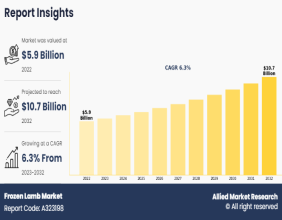Highlights
- Industrial Revenue Bonds (IRBs) are issued by local governments to fund private business projects.
- They offer tax-exempt financing for corporations, reducing borrowing costs.
- IRBs promote economic growth by supporting job creation and infrastructure development.
What Are Industrial Revenue Bonds?
Industrial Revenue Bonds (IRBs) are a type of municipal bond issued by local government agencies to finance private business projects. Unlike general government bonds used for public projects, IRBs allow corporations to secure funding for facilities, equipment, or expansion while benefiting from lower interest rates.
These bonds are particularly attractive to businesses because they often carry tax-exempt status, meaning interest payments to bondholders are not subject to federal income tax. This lowers borrowing costs for companies and makes IRBs a cost-effective alternative to traditional loans.
How Industrial Revenue Bonds Work
IRBs function differently from standard municipal bonds. Instead of the government repaying the bondholders, the private business benefiting from the bond is responsible for repayment. Here’s how the process works:
- A business applies for IRB financing through a local government agency.
- The government issues bonds to investors on behalf of the company.
- Investors buy the bonds and provide capital for the business project.
- The company repays the debt through project-generated revenue, with bondholders receiving interest.
Since the government acts only as a conduit, taxpayers are not liable for repayment, making IRBs a low-risk option for municipalities while attracting corporate investment.
Advantages of Industrial Revenue Bonds
- Lower Borrowing Costs – The tax-exempt nature of IRBs reduces interest rates, making financing more affordable for companies.
- Economic Development – IRBs encourage local business growth, job creation, and infrastructure improvements.
- Flexible Usage – Funds can be used for manufacturing plants, research facilities, hospitals, and other essential projects.
- No Public Liability – Since businesses, not taxpayers, are responsible for repayment, local governments face minimal financial risk.
Industries That Benefit from IRBs
Many industries utilize IRBs to fund expansion projects, including:
- Manufacturing and Industrial Facilities – Factories, warehouses, and processing plants.
- Healthcare and Education – Hospitals, research centers, and private universities.
- Energy and Utilities – Renewable energy projects and infrastructure improvements.
- Transportation and Logistics – Warehouses, distribution centers, and airport expansions.
Challenges and Considerations
While IRBs offer significant benefits, they also come with limitations:
- Eligibility Restrictions – Not all projects qualify for IRB financing, as they must meet specific local and federal requirements.
- Market Demand – The success of IRBs depends on investor interest in tax-exempt bonds.
- Regulatory Compliance – Businesses must adhere to government regulations and reporting requirements.
Conclusion
Industrial Revenue Bonds serve as a powerful tool for economic development, enabling businesses to access low-cost financing while fostering local job creation and infrastructure growth. By leveraging tax-exempt benefits, corporations can expand operations efficiently, while municipalities attract investment without financial risk. As a result, IRBs remain a valuable financing mechanism for both businesses and local governments.




